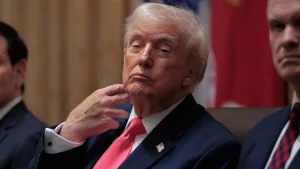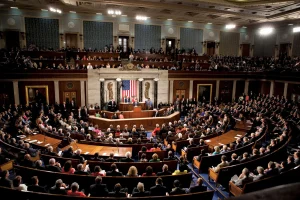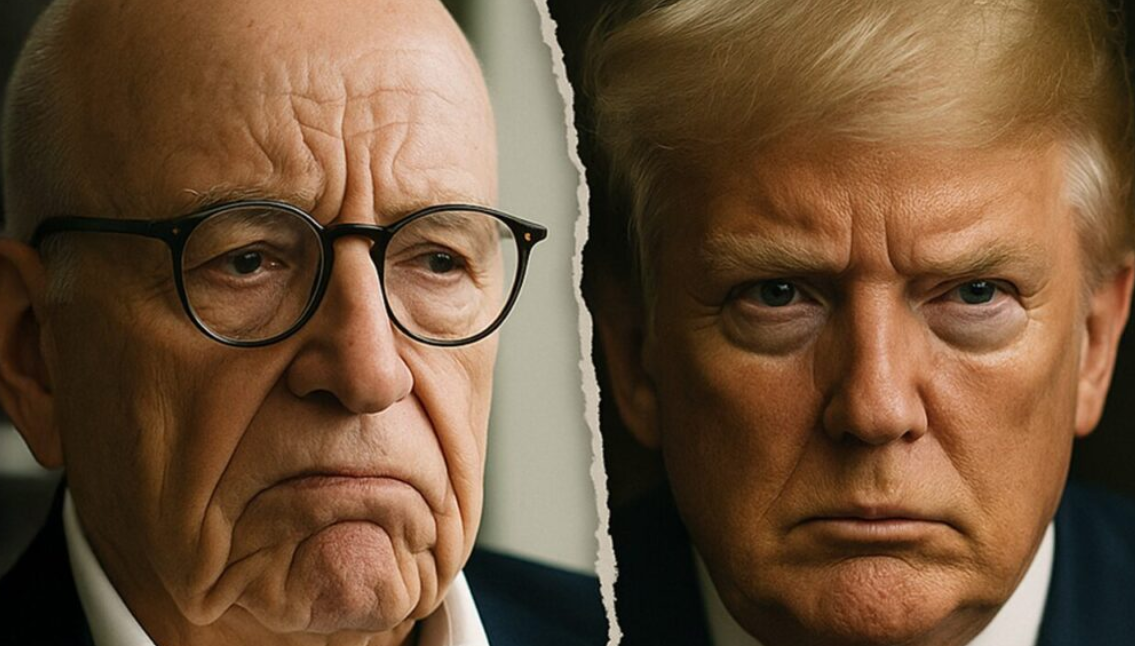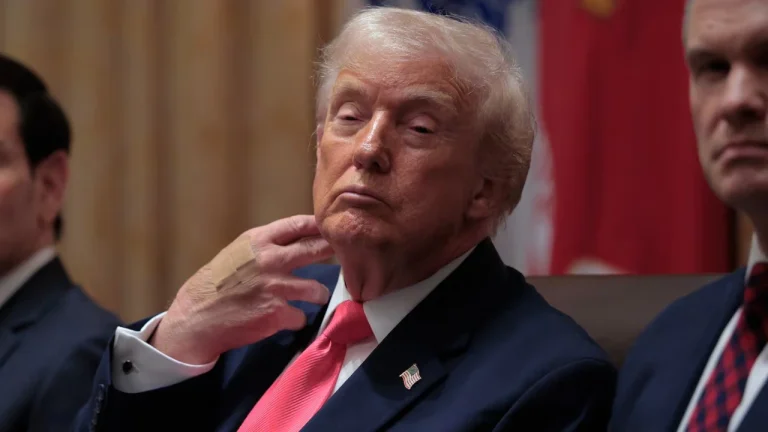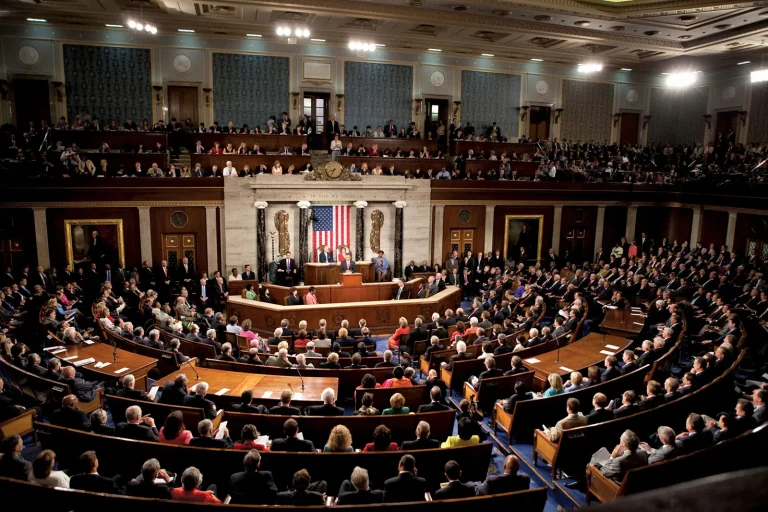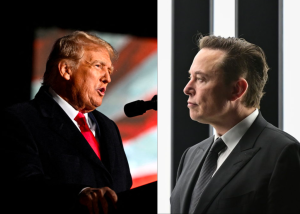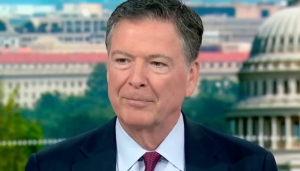NOTE:VIDEO AT THE END OF ARTICLE
Trump–WSJ Tensions Boil Over Ahead of Scotland Trip as Access Battle Heats Up
Tensions between President Donald Trump and The Wall Street Journal appear to have reached a breaking point. Ahead of the president’s much-anticipated trip to Scotland, the White House has taken a striking action that many are calling unprecedented — and it comes on the heels of renewed legal and editorial conflict between the Trump administration and one of America’s most influential newspapers.
Although details remain emerging, what’s clear is that relations between Trump and Rupert Murdoch’s media empire have taken a dramatic downturn, just as Trump prepares for a high-profile international appearance that’s expected to dominate news cycles globally.
A Shift in Access Policy
At the center of the dispute is the White House’s recent decision to exclude The Wall Street Journal from the official press pool accompanying President Trump on his upcoming trip to Scotland.
White House Press Secretary Karoline Leavitt made the announcement Monday, confirming that the Journal would not be included among the thirteen selected media outlets granted access to cover the overseas visit. The reason, according to Leavitt? “Fake and defamatory reporting” by the Journal concerning President Trump’s alleged connection to convicted sex offender Jeffrey Epstein.
The White House cited a disputed story published earlier this month by the WSJ, which alleged that Trump had once sent a personal letter to Epstein for his 50th birthday. The president has forcefully denied the report, labeling it “false, defamatory, and politically motivated.” In response, Trump filed a formal defamation lawsuit against the Journal, marking a rare moment in modern U.S. politics — a sitting president actively suing a major media outlet.
Citing the Courts: Press Access Isn’t Guaranteed
The White House has leaned on a recent federal court ruling that affirmed the executive branch’s authority to grant or deny access to specific press outlets. Leavitt defended the decision, saying, “The Wall Street Journal or any other news outlet are not guaranteed special access to cover President Trump — not in the Oval Office, not aboard Air Force One, and not during official diplomatic travel.”
She went on to emphasize that thirteen other outlets had been selected to join the press pool for the Scotland trip, which the administration claims represents “broad media diversity.”
WSJ Declines to Comment
So far, The Wall Street Journal has not issued an official statement in response to the exclusion. A spokesperson reportedly declined to comment when reached by The Hill and other outlets. Still, the silence hasn’t stopped speculation about whether this incident marks a permanent fracture between Trump and Murdoch’s media empire, or merely a temporary flashpoint in a rocky relationship.
Trump and the Murdoch Empire: A Long, Complicated History
Although the Journal has often offered conservative-leaning editorial positions, its relationship with Trump has been marked by volatility and mixed coverage. Owned by Rupert Murdoch’s News Corp — the same parent company behind Fox News — the Journal has at times supported Trump’s economic policies while remaining critical of his tone, legal troubles, and handling of international diplomacy.
The president, for his part, has oscillated between praising Murdoch’s media outlets and blasting them as “fake news” depending on the day’s headlines. Now, with legal action underway and press access denied, the once-cautious alliance appears to be entering a more openly adversarial phase.
A Broader Strategy? Press Access and Political Messaging
Critics argue that the Journal’s exclusion is part of a broader Trump strategy aimed at controlling narratives and punishing dissent in the media. They point to other recent moves by the Trump administration, such as restricting White House briefings and re-curating press pool memberships to favor more sympathetic outlets.
“This is not just about one article,” said a senior media analyst on CNN. “This is about creating a media environment where access is conditional on favorable coverage — and that has long-term implications for press freedom.”
Supporters of the president, however, say the decision is justified. “When a media outlet publishes defamatory lies, they shouldn’t get the privilege of elite access to the president of the United States,” said a conservative commentator on Newsmax. “They’ve earned their exclusion.”
Legal Firestorm Still Brewing
The defamation lawsuit against The Wall Street Journal is still in early stages. Legal experts say it will likely hinge on whether the Journal can substantiate its claims regarding the alleged Trump–Epstein letter, and whether it acted with what the courts define as “actual malice” — a key standard for defamation cases involving public figures.
If the case proceeds, it could set new precedents around presidential litigation against the press, especially in an age of digital media, political polarization, and AI-generated misinformation.
What’s at Stake on the Scotland Trip?
Trump’s upcoming visit to Scotland is expected to include meetings with British and European political figures, a speech at an international trade summit, and private stops at Trump Organization properties.
It’s also being seen as a key opportunity for the administration to bolster its foreign policy image, tout economic achievements, and reset narratives around international engagement — particularly in Europe, where Trump’s presence has long drawn both fascination and controversy.
With The Wall Street Journal sidelined, the trip’s media coverage will take shape through a carefully selected group of outlets — a move that will undoubtedly affect the framing and tone of how the visit is portrayed to American and global audiences.
Final Thoughts
The White House’s decision to bar The Wall Street Journal from President Trump’s Scotland press pool marks a new chapter in the administration’s battle with mainstream media. Whether it’s a principled stand against misinformation or an aggressive tactic to silence critics depends largely on one’s political lens.
But what’s clear is this: as Trump sharpens his political messaging heading into 2026, his relationship with once-allied media giants is shifting fast — and the consequences could reverberate across journalism, law, and public discourse for years to come.
https://www.youtube.com/watch?v=0UwnRJgL72E

Sarah Mitchell is a bestselling novelist recognized for her insightful and emotionally resonant stories that explore the complexities of human relationships. Originally from Denver, Colorado, Sarah grew up in a family of teachers who nurtured her curiosity and love for storytelling. She studied psychology at Stanford University, where she became fascinated by the intricacies of human behavior—an interest that would later shape her writing career. Sarah’s novels are praised for their nuanced characters, intricate plots, and ability to capture the subtle tensions that define love, friendship, and family ties. Her breakthrough novel, The Spaces Between Us, became an instant bestseller, lauded for its honest portrayal of strained family relationships and the fragile bonds that hold people together. Since then, she has published several works that continue to captivate audiences around the world. Outside of her writing career, Sarah is passionate about mental health advocacy and often partners with organizations to promote awareness and support for those struggling with emotional well-being. Her personal life is quieter—she enjoys hiking in the Colorado mountains, practicing yoga, and spending time with close friends. With each new book, Sarah Mitchell cements her reputation as a writer who illuminates the beauty and struggles of human connection.

